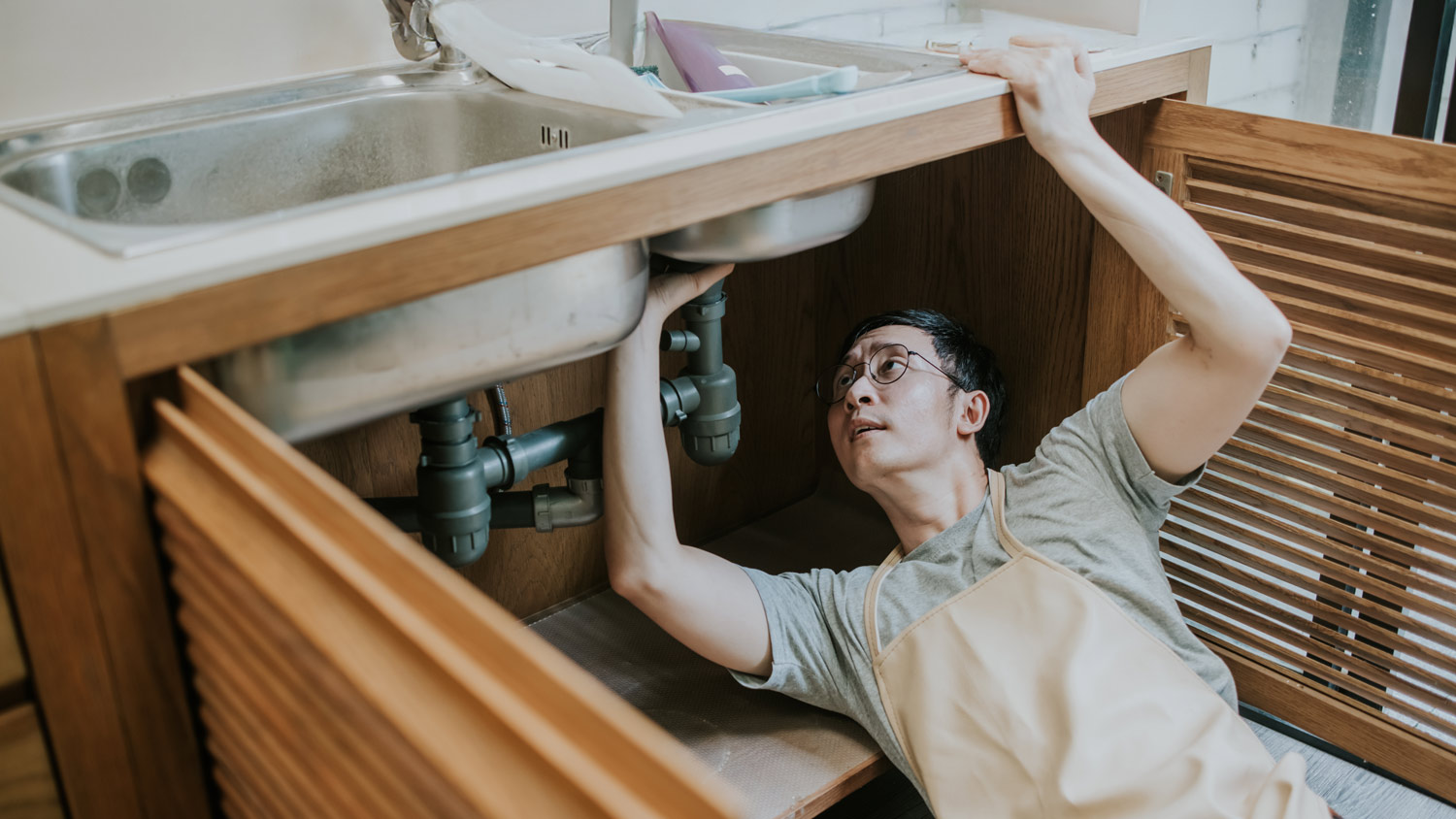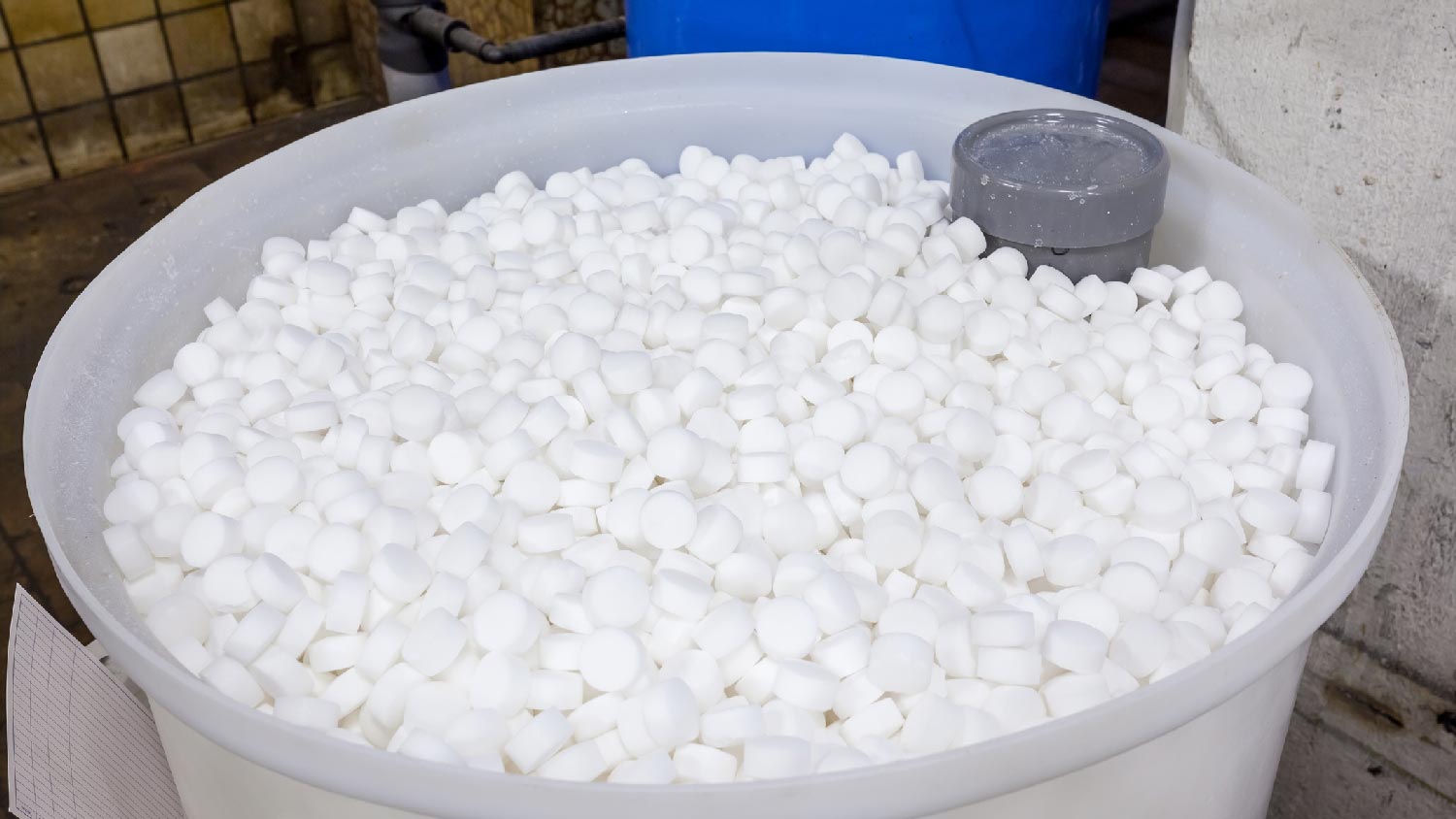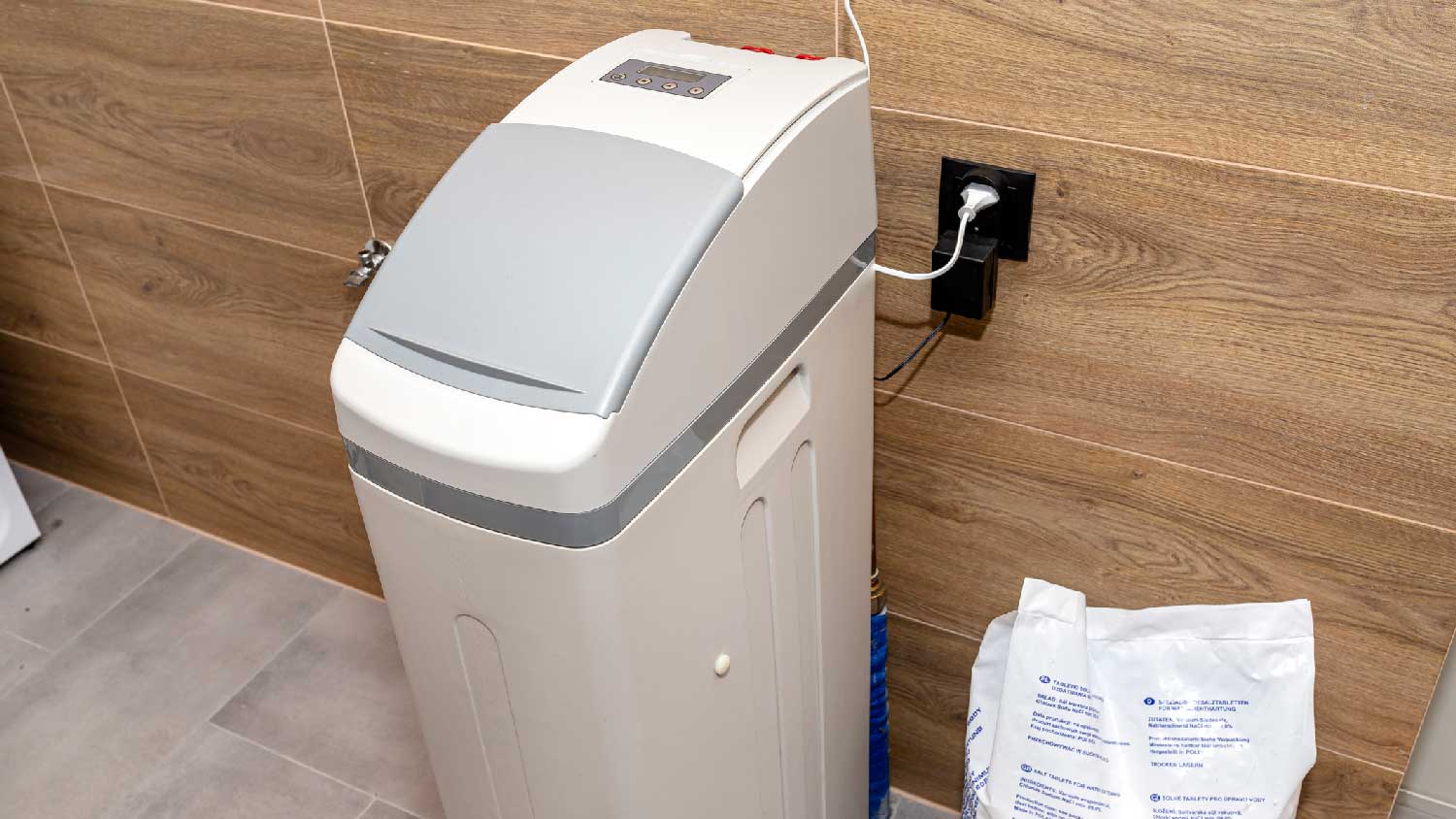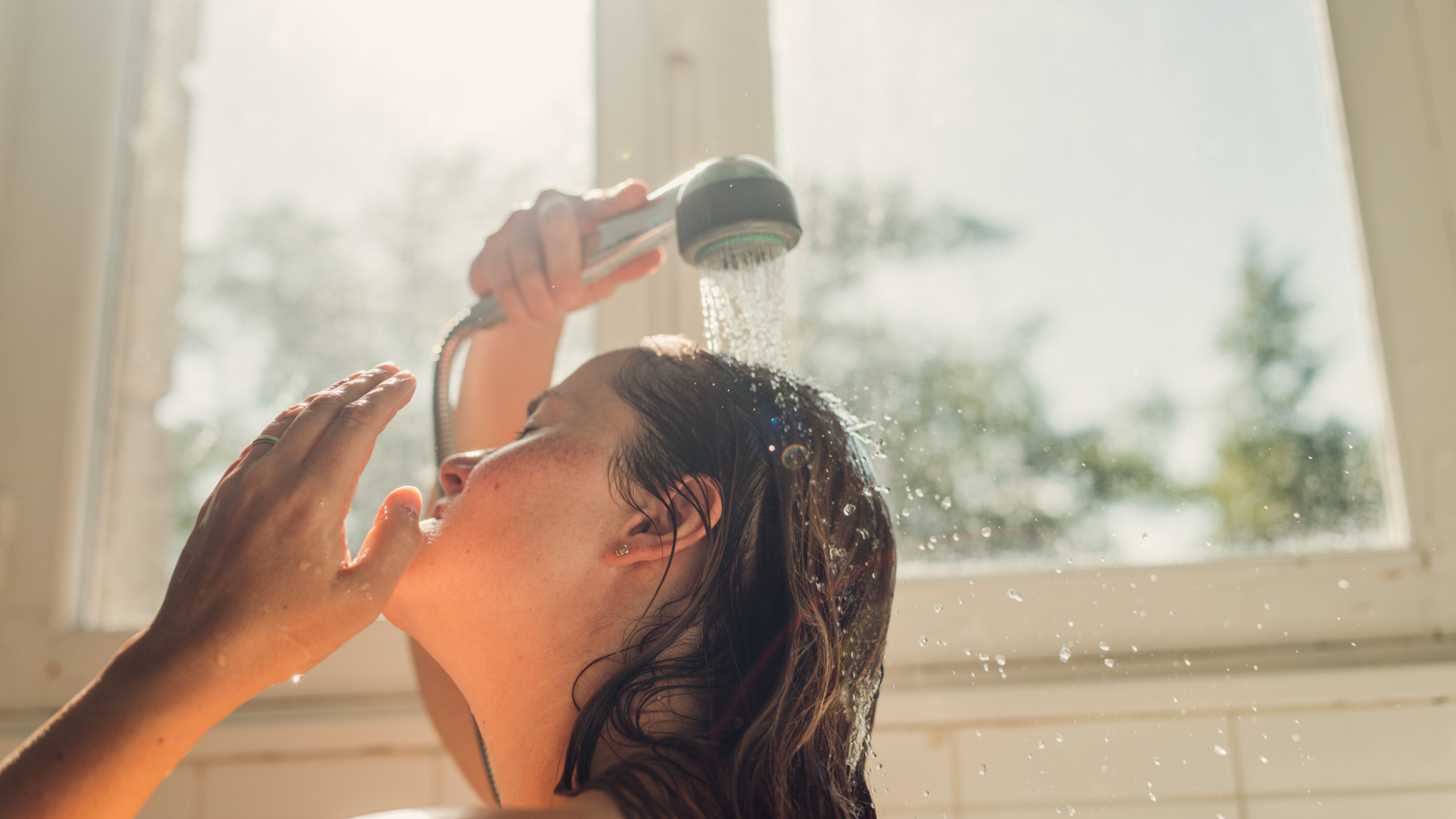How to Treat Hard Water in Columbus
Whether on a well on municipal water, many Columbus-area homeowners rely on water softeners to treat hard water.


After moving to a new home in Blacklick, Angie’s List member Andrew Biller noticed a crusty, white buildup around faucet fixtures and showers — a telltale sign of hard water. Indeed, the Jefferson Water and Sewer District labels the water flowing into area homes as moderately hard at seven grains per gallon, because of its concentration of minerals such as calcium, lime and magnesium. “When we moved in, the faucet in the kitchen, when you turned it on, no water came out because it was so blocked with sediments and minerals,” Biller says.
To remove the minerals, he bought a water softener, as well as a reverse osmosis system to treat his drinking water, for $2,000. “It’s definitely fixed the hard water crust that accumulates on fixtures, especially in the shower,” he says. Water softeners help extend the life of appliances that use water - as well as pipes, faucets and shower heads - by removing minerals, which build up inside plumbing and outside on fixtures and can reduce water flow or pressure, says Brian Dickson, owner of Price Professional Water in Columbus. Softened water also cleans with less soap, shampoo and detergent than hard water, and leaves clothes brighter and skin and hair softer.
“The municipal city water in Columbus is really pretty good water as far as hardness goes,” Dickson says. “Where you run into problems are homeowners who live outside the city limits.” While the city of Columbus softens its water, homeowners living outside the area may have hard or very hard water. Municipal water for Columbus is classified as moderately hard, also at seven grains per gallon, according to the Department of Public Utilities for the City of Columbus. Water that has more than seven grains of dissolved minerals per gallon is considered hard.
“If you’re on well water, you pretty much have to have a water softener,” says Mike Jackson, manager of highly rated Aqua Systems in Columbus, who explains that many homeowners in the outlying areas draw water from a well, which contains iron that can stain countertops, clothes and sinks.
Erik and Heather Bussey’s Marysville home draws water from the municipal system, but it was harder than what Heather was accustomed to using while growing up in her parents’ home. The couple noticed calcium stains forming in the shower of their newly built home, which made Heather want a softener like the one she grew up with. For $1,500, the Busseys purchased a water softener and a reverse osmosis system. “I wish we would’ve put this in as soon as we built the house,” Erik says.
Professionals and laboratories use two different measurements to determine water hardness. The Water Quality Association, an international trade organization of water quality improvement professionals, often use grains per gallon to measure water hardness while laboratories use milligrams per liter. Less than 1.0 grains per gallon (less than 17.1 mg per liter) soft1.0-3.5 grains per gallon (17.1-60 mg per liter) slightly hard3.5-7.0 grains per gallon (60-120 mg per liter) moderately hard7.0-10.5 grains per gallon (120-180 mg per liter) hardover 10.5 grains per gallon (over 180 mg per liter) very hard Source: Fairfax County Water Authority, Fairfax, Va.
The cost for a good water softener ranges from $1,000 to $1,400, Jackson says. The salt needed to filter out minerals during the softening, or regeneration, cycle comes in 40-, 50- and 80-pound bags, and needs replacing based on usage. Depending on the size, salt retails for about $7 a bag. Unlike older models, modern water softeners can be set to regenerate at a specific time, such as in the middle of the night, to avoid using hard water during that period.
The softening cycle lasts about 90 minutes to two hours. Though many softener systems rely on daily regeneration, newer systems are designed to regenerate less frequently, using less water and salt in the process.Water softener rentals through Aqua Systems start at about $16 per month. The company also delivers salt, starting at about $12 for a 50-pound bag.
Dickson says he often hears concerns about residual salt in softened water, especially from those with high blood pressure, and some companies advertise salt-free systems. “The amount of sodium is minimal,” he says. Products advertised as “salt-free” water softeners aren’t really true softeners, experts say. Salt-free systems condition the water by reducing limescale, but don’t eliminate minerals because a soft mineral like sodium or potassium is required to remove them. No-salt water conditioners also don’t remove iron from well water, Dickson adds. Instead of a salt-free system, those who want to avoid sodium but still reap the benefits of softened water may substitute potassium chloride pellets for sodium chloride, which is most commonly used, or include a reverse osmosis system to remove sodium. Potassium chloride costs significantly more, retailing for about $25 for a 40-pound bag.
Concerns about water quality — not water hardness — prompted Powell member Falguni Patel to install a water softener and purifier. Patel says she’s noticed her skin is softer and appliances perform better. “I’m not using as much lotion, I can tell you that,” she says.
Have you installed a water softener to treat hard water? Tell us about it in the comments below.
Editor's note: This is an updated version of an article originally posted on Aug. 20, 2013.





- 7 Tips on How to Choose a Water Softener That’s Right for Your Home
- How Do You Program the Different Settings on a Water Softener?
- Water Softener Regeneration: A Brilliantly Discreet Method for Removing Hard Water
- A Water Softener Can Help Your Appliances Last for Years Longer
- What Is a Water Softener and Is It Right for Your Home?
- 4 Water Softener Alternatives That Ditch the Salt
- 7 Benefits to Cooking With Soft Water
- 4 Types of Water Softeners and How to Choose the Right One
- Salt-Free Water Softeners: Everything You Need to Know
- What Is Water Softener Salt? Cost, Types, and Everything You Need to Know














